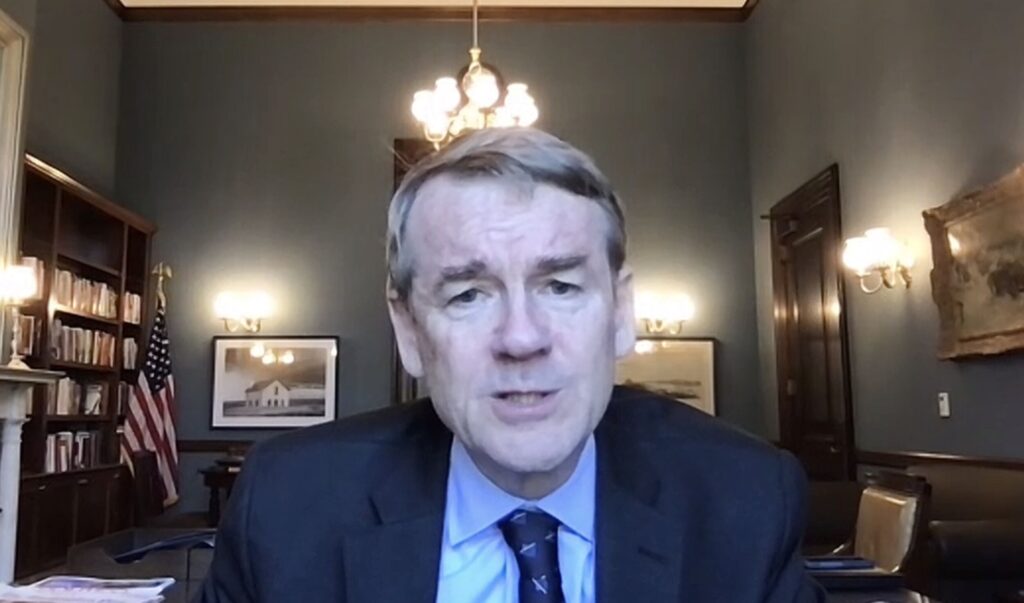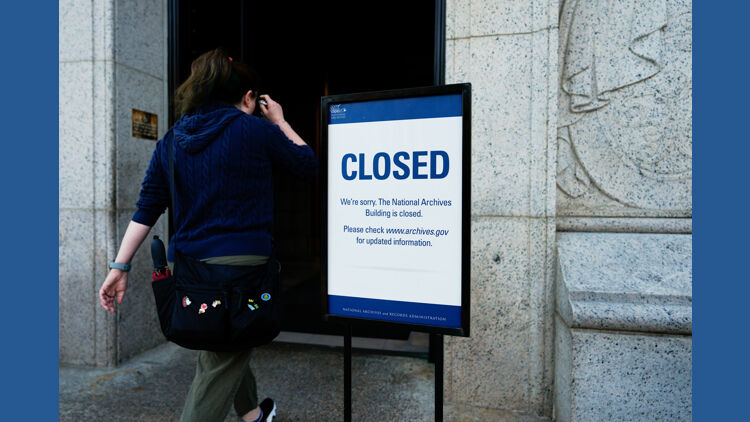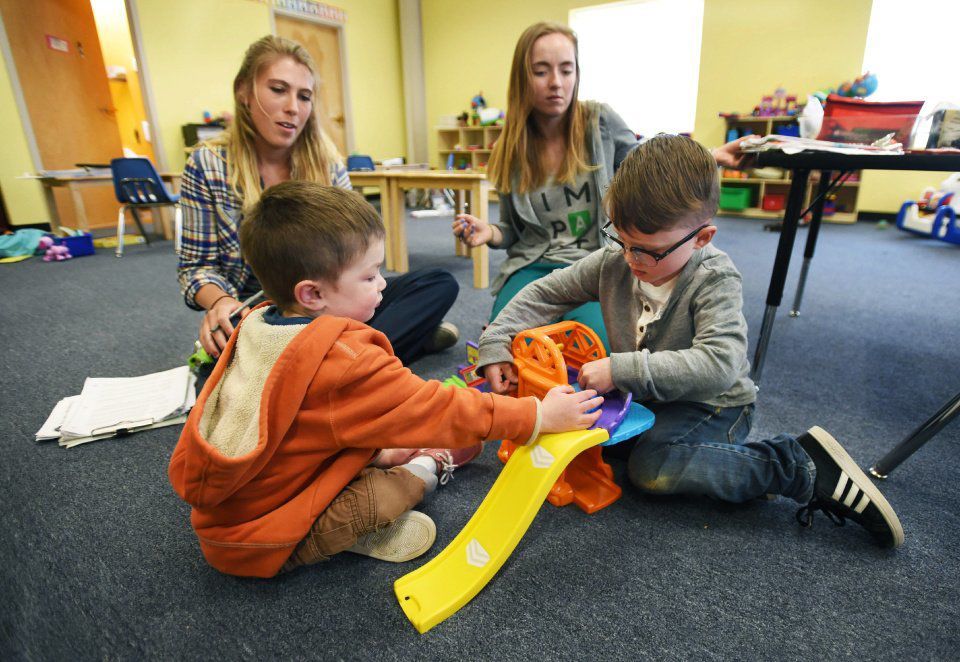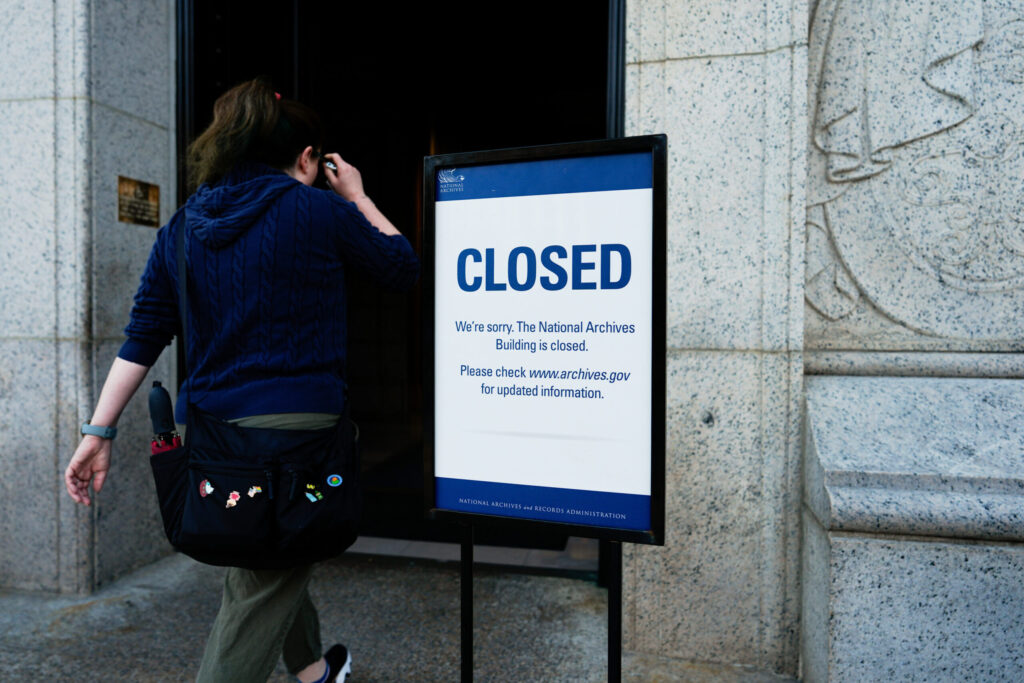From lobbying to campaigns, Fofi Mendez devoted to protecting vulnerable
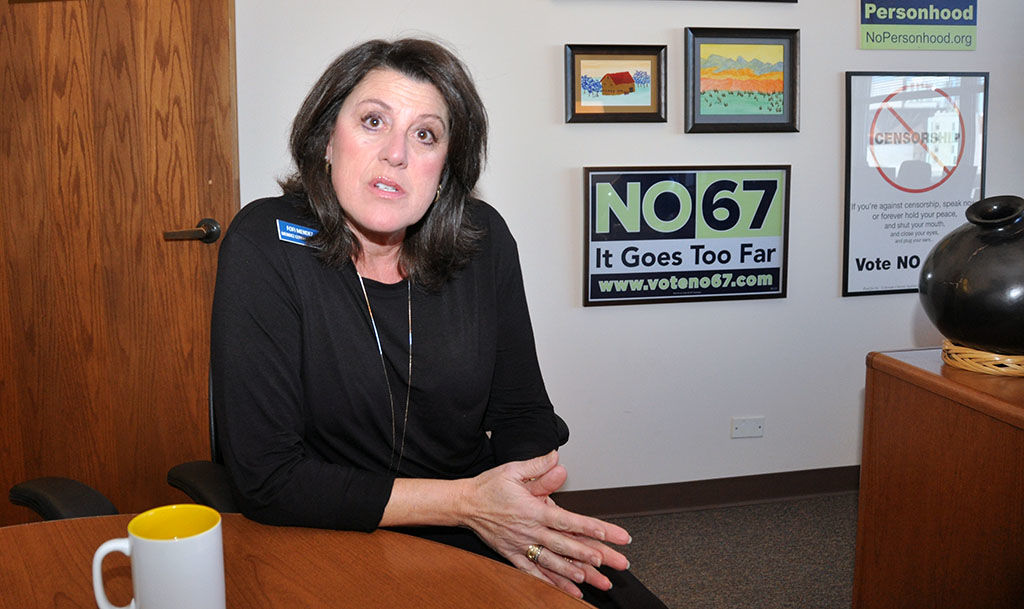
Twenty-five years later, lobbyist Fofi Mendez, the principle at Mendez Consulting, Inc., says the memory still sends a shiver down her spine.
She had an established career in Colorado working in the anti-violence realm, directing victim’s services for the Rape Assistance and Awareness Program – now known as the Blue Bench – starting in the early 1980s. Working with the National Coalition Against Sexual Assault, Mendez – her given name is Florangel – became president of the Colorado coalition by the end of the decade and got involved in its successful efforts to make marital rape a crime in the state.
Then, a year or so later, the coalition decided to push to extend the statute of limitations for child and adult victims of sexual assault, so Mendez approached her mother, who had founded the lobbying firm Mountain Legislative Consulting Services nearly a decade earlier, and asked if she’d help pass the legislation pro bono.
“She said I had to come down to the Capitol, I had to do all the fact sheets, I had to lobby all the legislators,” Mendez recalls. “If I was willing to do all that specifically, she said she’d find sponsors for us. So I did.”
State Rep. Faye Fleming, an Adams County Republican, agreed to sponsor the bill, and it was making an appearance before its first committee. Lawmakers appeared to be fine with raising the statute of limitations for child abuse but weren’t sure if they wanted to do that for adults, Mendez says.
“So Faye took us outside and said she was wondering if she should tell the committee her story, that she had been raped several years ago when she was in Washington, D.C., for a conference,” Mendez says. “She went back in and shared her story, and the bill passed unanimously out of committee and then passed out of both chambers. To this day, it still gives me chills.”
It was a sound victory, but Mendez went back to work at the rape crisis center, until a fateful lunch with her mom and little sister.
After their mother mentioned that a staffer had departed to go work back east, Mendez recalls, her sister said, “‘Oh, you should go do this with mom, you worked really well on that other bill, you should go work with mom.’ So the next thing I know, my sister’s negotiating an employment contract with my mother. There you go!”
Looking west out the window of the high-rise where the offices of Mendez Consulting, Inc., have landed, she gave a rueful smile and let loose one of her trademark hearty laughs during a recent interview with The Colorado Statesman.
“I had done everything I’d wanted to do at the victim’s services center and wasn’t sure what I wanted to do. I wasn’t sure if I was going to go back to school and get a Ph.D. in psychology or what I would do, so I was at a crossroads and decided to come into business with my mom. That was December 1991,” she says, and there’s that laugh again.
After moving around a few times over the decades, the firm some years ago located itself in The Chancery building at East 11th Avenue and Lincoln Street, high enough in the tower to enjoy a dazzling view of the mountains.
“It’s a bit of a hike to the Capitol. You’ve got to hoof it. We just walk fast,” she smiles.
But the view inside the offices is equally compelling – the walls adorned with posters that represent numerous issue campaigns run by the firm over the years.
That’s how she joined forces with Pat Steadman, then a young lawyer and today a term-limited state senator, who eventually became a partner with Mendez until he won the vacancy appointment to fill his legislative seat in 2009.
It was 1994 and the Mendez firm represented the Colorado Association of Libraries.
“There was a censorship issue,” she recalls. “Then-Sen. Bill Owens – now former Gov. Owens- tried to do a ballot measure, and the libraries asked us to work with the Motion Picture Association and Joyce Meskis with the Tattered Cover. We killed it in the Legislature, but then they put Amendment 16 on the ballot. The Motion Picture Association came into town and taught me what to do,” she says.
Part of her job was examining signatures on the petitions the measure’s backers had gathered to get it on the ballot. That led to meeting an attorney working with the ACLU of Colorado – Steadman – who was also reviewing the measure’s petitions.
“We realized all the signatures had been gathered on Sunday afternoon, and they were all valid. They were able to get on the ballot,” she says, shaking her head. “I just looked at Pat and said, ‘You’re an attorney, and you’ve got an interest in this. I’m a lobbyist, and I’ve got an interest in this. Somebody’s got to run this campaign – do you want to run it with me?'”
Again with the laugh, the kind that beckons, Come sit over here, I’ve got some stories to tell.
“And that’s how Sen. Steadman and I got involved together,” she says.
Amendment 16 went down by nearly 2-to-1 that November, and the next month the firm needed another lobbyist. After interviewing plenty of possibilities, Steadman got the job, and when her mother retired, they renamed the firm Mendez Steadman and Associates. (It’s been Mendez Consulting, Inc., since Steadman left.)
“We started to focus on issue campaigns statewide that were impacting the clients we represented,” she says. “The next one was in 1996, when we worked to defeat the Parental Rights Amendment. That got national attention. It was basically going to undo our child abuse laws in the state of Colorado, so that was very resoundingly defeated, which was great. That threw us into a whole different level of running statewide campaigns.”
Since then, the firm has established a nearly unblemished record managing statewide campaigns aimed at defeating ballot measures opposed by clients. The exception was in 1998, when voters narrowly rejected an initiative that would have come close to banning abortions in Colorado but approved another that required parental notification for minors seeking abortions. (The firm hasn’t just run campaigns against ballot measures, notching wins with its work in support of a 12-year reauthorization of the Scientific and Cultural Facilities District tax in 2004 and a $50 million bond issue for Denver libraries in 2007.)
The firm has what Mendez calls a solid base of clients they’ve represented for a long time – some, like RxPlus Pharmacies and the ACLU for decades – trade associations, often in the health care field, education groups and civil rights organizations. Keeping a broad focus, the firm – Mendez employs two, sometimes three other lobbyists – handles topics ranging from criminal justice to child welfare and matters involving vulnerable populations, including people with developmental disabilities.
One of her longstanding and highest profile clients is Planned Parenthood of the Rocky Mountains, and that means she’s helped helm the campaigns against the Personhood Amendment three times in the last decade. “Year after year,” she says, with a weary, begrudging smile. (The initiative has been on the ballot – and gone down to defeat by increasing margins each time – in 2008, 2010 and 2014.)
“That is such a huge coalition effort,” she says. “It’s just a fabulous coalition to work with – doctors, nurses, Planned Parenthood, NARAL, Latino organizations, faith leaders.”
She says that support for reproductive health rights, including abortion, has stood fairly consistently at 60 percent of Colorado voters over the years, though it’s ebbed and flowed a bit.
“That’s been historically true, whether it’s Republicans or Democrats feeling that way. There have certainly been Republicans I’ve seen fall off, where it used to be there were more pro-choice Republicans, and they were willing to vote down issues like bans on birth control or to create unnecessary regulations on clinics. That has not been the case so much in the last few years, but I’m starting to see it moving back that way,” she says.
“These are personal, private medical decisions. That has always been a value that Republicans have had as well, that government should stay out of our personal lives. And that is a value I’m seeing resurface recently in the area of reproductive health care.”
There’s plenty to keep her on her toes, year after year, Mendez says.
“The thing that I enjoy the most is that every session is different. More importantly, the clients we represent, their issues do cross the political divide, so being able to work with both sides of the aisle and make good, strong public policy throughout the 25 years I’ve done this has been very rewarding. But it’s always something new, every year.”
While she observes that the job of lobbying at the Capitol has changed dramatically in the last couple decades, Mendez adds with a chuckle that nearly every day during the legislative session can have the same structure.
“The typical day,” she says without pause, a big laugh percolating just under the surface, “involves getting to the office, loading the briefcase with fact sheets and information and to-do list, who do we need to talk to, both with legislators and making appointments with their aides, talking with department individuals, and then running down to the Capitol to see who I can get, then running back to the office to meet with clients, review bills, take positions, and then run back down to the Capitol with another set of fact sheets and another set of to-do lists.” Pausing for a breath, she adds, “That’s typically how our day goes for 120, every day.”
But things were very different when she first started lobbying.
“We didn’t have term limits, we didn’t have cell phones,” she says. “I used to lobby with a roll of quarters. You just had pay phones, you didn’t have cell phones.” Shaking her head, she gives a conspiratorial smile. “When the bricks first came out, I just knew, we thought, ‘No, we’re not carrying those around the Capitol.'”
Not only were there no cell phones, information didn’t flow very freely at all.
“There were no audio streams – back then, even in the Joint Budget Committee, it was close to impossible to get a document at the time the hearing was happening, so you sat there and listened to the backs of their heads and took copious notes.”
“Things are a lot faster than they used to be. In addition to being the eyes and ears and, oftentimes, the mouth for the client, talking with legislators, the thing that’s changed the most is that things move faster,” she says. “More importantly, because of term limits, not only has the lobbyist become the institutional memory for the legislators, but the clients themselves have become that expert contact for legislators. That’s good and bad – it has its pros and cons.”
Among the cons, she says: “There isn’t the length of time we used to have where leadership was able to stay in their positions a little bit longer. You’re seeing a lot more of the one-term speaker, the one-term majority leader. That makes for a lot more instability in terms of the tone and tenor and flow of the legislative session.” And the pros? “It affords an opportunity for the community and for organizations to be able to make that contact as legislators are turning over every election year, to become that legislator’s expert in a particular area.”
Still, the day-to-day work – keeping clients informed, pushing for or against legislation, building coalitions – is the same.
“At the end of every session, we’ll review what gains or what losses our clients may have had and look at what they want their legislative agenda to be moving forward,” Mendez says. “It’s not uncommon to talk to a legislator at the beginning of June about a piece of legislation for the next year, or you’ll be running right up against that December deadline in terms of getting a bill in. But, typically, it’s pretty methodical – work with legislators you know are interested in a topic.”
With the control of the two chambers divided between the parties, she notes, it can be a challenge putting together partnerships – among legislators, between various interest groups – but it’s also an opportunity for the kind of topics many of her clients care about.
“Now, with split chambers, making sure you’ve got a piece of legislation both parties can be supportive of, and knowing where your champions are on both sides of the aisle, is very important in creating that bipartisan, co-prime sponsorship.”
Some issues, including the SCFD reauthorization legislation this past session and criminal justice matters, typically will attract the bipartisan support necessary, she says. “Issues with regard to developmental disabilities always seem to have that kind of support, too, where both Democrats and Republicans are willing to work on legislation to fit the needs of the community and move that solution forward,” Mendez says.
When it comes down to it, she says, Gov. John Hickenlooper has the state pegged.
“I do believe that Colorado is unique – we want to do it our way, and, certainly, our way has evolved in the two-plus decades I’ve done this to be, let’s get everybody sitting at the table.” She says. “I remember one year being threatened by a legislator that if our group could not work out our differences, she was going to lock us in a room together until we could figure out how to satisfy everyone’s interests.” She punctuates the memory with a laugh.
And then, reflecting about fighting some of the same battles she fought 20 years ago, there’s more laughter.
“You know, I’ve always said that I wish that I wasn’t, but then I’d be out of a job.”
– ernest@coloradostatesman.com




